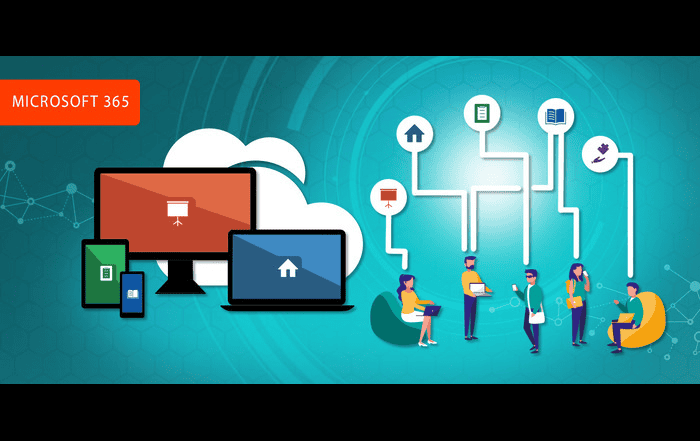
With inboxes bulging like bubble-packed Amazon deliveries, most of us are receiving copious, never-requested emails of advice, empathy, and cajoling insight from this or that person on how to keep ourselves relevant during the outbreak of COVID-19.
Some of these emails are laden with useful, thoughtful enlightenment. Others are touting talking-head webcast synopses of government programs rolled out en masse with the clarity of fog-enshrouded San Francisco Bay. Yet others leave me deliberating the qualifications of the company or person doling out guidance and opinions I will charitably refer to as questionable.
Perhaps it’s because I am in the tech industry so many of my emails are intent upon ensuring I go beyond embracing right into advocacy of technological advancements they claim are on par with mankind’s leap from stones to bronze swords. If your inbox looks like mine, the conversation about technology has been had and is well on its way to slogging-a-dead-horse status. So let’s not have that conversation; let’s have a new one.
We all know technology can help. We see it in action from our makeshift desk in the spare bedroom. Slack, Zoom, Google, and Asana make us feel connected, productive, and effective despite the backdrop of crying children, barking dogs, and cursing spouses during a webcast with 18 colleagues whose children, dogs, and spouses are doing the same things.
So I’ll be agreeable and accept there actually is technology out there capable of paging in a new phase of the industrial revolution and perhaps I already own it. How do I—or you, a new home-bound worker—wring from it life-giving nectar our careers need in order to become relevant—no, to continue to be relevant in a drastically changing world?
5 steps to help you better take advantage of technology
This is my first pandemic too, and just like you, I am trying to do my job from home. This is not the same as working from home. Perhaps unlike you, I’ve been doing this for about ten years, so it’s business as usual for me. Having spent all this time hanging out with my dogs, a quick finger on the mute button, I feel qualified to give you unsolicited advice, sans inbox.
Since I promised not to talk about technology, the fact my collection of apps rivals a beach of silica beads is not important. That I’ve been able to successfully adopt some of those technologies and make myself relevant for many years—and more effective—is.
Back in grade school when we kids were trying to learn fractions, I recognized not everyone learned in the same way or at the same speed. My advice to you on how to ensure your technology can help you keep your job (because you have needed skills) and advance your career (because you are relevant) is captured in these five steps. Though not all of them will work for you just because they do me, I am confident something is going to stick.
1. Read the manual
As a consultant and trainer to the print industry for many years, this is the very best advice I can give for ensuring technology can help. Read. The. Manual.
Surprisingly the manual, or documentation, has nearly everything you need to know about how your choice of technology works and how it can benefit you. Somewhere, someone with a passion for this technology took the time and with pen in hand, so to speak, wrote down answers to questions you might have about features, bells, whistles, and maybe even weaknesses.
You may not remember much about what you read—until you need it most. Even then, your memory is unlikely to provide the answer at the snap of a finger. What you’re hoping for is it will ring a bell. A bell so distant the page it was on or the chapter it was in escapes you. But as those delicate chimes swirl your grey matter they take the form of keywords and phrases. These gems are clues to the right way to ask the question in online forums, knowledge bases, or support chats.
2. Watch the videos
Is reading a book too much of a time-suck for you? I understand. I too have a life outside my work and would prefer not to give too much of it toward career advancement. In that case, tune in to the manufacturer’s YouTube channel.
Watch the entire series, not just a single episode. In the same way you won’t remember everything you read, you may find videos have even less specific stickiness. Especially if you start following links to cat videos (or in my case, dog videos).
All that visual input can be a distraction, but you get a similar benefit as you will with reading. You may not have a total recall of the entire solution, but you will remember a solution exists and fill your quiver with keywords for on-target searches.
3. Recertify each year
Much of the technology in my stack has a certification path, which I pursue. Using online courses from Udemy (no, they are not paying me), I chase certifications as though my career depends upon it because it does.
Google Analytics is a great example.
As a marketer, this is not just an important certification, it’s an important part of my job. It makes me more effective. A perfect example of how technology can help. I get paid more money because of it.
So, each year, I block out the 18 – 24 hours it takes to endure the certification videos plus addenda videos covering new feature releases. I have watched the same 18-hour base videos about four times and each time I learn something new.
4. Teach someone
In the twilight of my career, mentoring and passing some of my experience to younger generations is important to me. I feel it’s part of the deal we make as a participant in the human race.
I’ll be the first to acknowledge teaching a young person about hot-lead typesetting or paste-up at this point is not all that useful, but introducing an intern to Funnelytics (no, they’re not paying me either), and teaching them my tricks to understanding marketing data is not just rewarding, it’s enlightening.
Just when I think I am the master of my domain, some twenty something comes along, asks a brilliant, stupefying question, and I am in mad pursuit in order to satiate their (and my) quest for knowledge.
Understanding technology from someone else’s point of view is an extremely rich vein. Tap into it and you’ll find features you wonder how you lived without.
5. Contact support
Conversations with any technology company’s support team is a truly fantastic way to learn more about, well, anything. Support is no longer relegated to a phone conversation with an overseas support tech in the middle of the night, you can now opt for online chats—a truly miraculous technology in and of itself.
Making your technology truly helpful only comes when you have a full understanding of how it works, and how you can work better because of it. This is an innovative age. You are an innovative person. Embracing technology will make you more successful.








